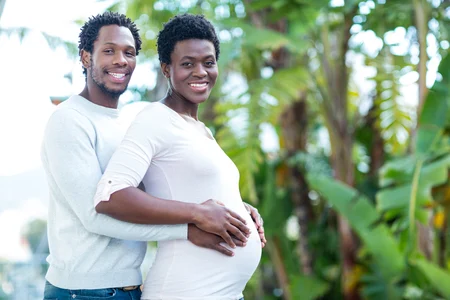I gaze at my wonderful daughter, filled with love and pride, and I can hardly fathom how I could ever feel anything but warmth towards her. I want to be her safe haven, the one she can trust with all her heart. But then I reflect on my relationship with my mother and can’t help but question where it all went wrong.
I often wonder, why couldn’t she have let me enjoy my childhood instead of robbing me of my innocence? Why did she feel the need to demean me with names like “brat” and “selfish” and even resort to slapping me when I was just ten? Why couldn’t she simply love and accept me for who I am, rather than attempting to control every facet of my life? I’m left baffled by her tendency to compete with me rather than support me as I navigate adulthood and motherhood. Why can’t love be enough?
After a long journey, I’ve finally accepted that the relationship I dreamed of having with my mother will never materialize. The ideal mother-daughter bond I see on social media is something we will never share. We won’t have those bonding moments at the nail salon or share laughter over coffee. I won’t ever look to her for reassurance as I bring new life into the world. I won’t be able to lean on her when I find myself in despair. We will never be each other’s confidantes.
Mother-daughter relationships can be complex, but mine feels particularly tangled. It seems that after her divorce from my father, she became resentful and viewed me as a rival. The confusion of being seen as an enemy by your own mother is something no child should endure.
Over the years, our relationship has had its peaks and valleys, with far more lows than highs. Years of therapy helped me reach a point where I could start forgiving her for her shortcomings and recognize that she is just a flawed human being. Understanding her background and the struggles she faced allowed me to find some peace and move forward. While her behavior didn’t change, my perspective did.
I learned to cherish the good moments we shared, even while trying to ignore her controlling nature and unsolicited advice. Her negative comments no longer dictated my self-worth. I thought I had finally escaped her grip until I became a mother myself, at which point all her dysfunctional tendencies resurfaced.
After the birth of my son five years ago, the abuse kicked back in. She felt compelled to dictate how I should raise my child, disregarding my choices. When I politely rejected her advice, she would push and criticize me mercilessly. It left me feeling powerless. Recovering from major surgery, I expected support, not additional stress from my own mother.
The breaking point came when she called my mother-in-law to vent about how “horrible” I was, claiming it was only a matter of time before my husband wised up and left me. I had to ask her to leave my house. The hurt was indescribable, and all the childhood pain surged back. It felt like a crushing blow, reminding me of how deeply she could wound me.
After she left, she spun the narrative to family and friends, painting me as the villain and herself as the victim. This cycle of abuse is all too familiar: the attack, her refusal to take responsibility, and then a smear campaign where she tells anyone who will listen how awful I am. The cycle continues with her attempts to reconcile—rarely with a sincere apology—only for me to let her back in, and the pattern repeats.
In one instance, she did apologize, claiming jealousy over the help I received from my husband. How sad and twisted is that? My empathy allowed her back into my life, but the pattern repeated itself yet again.
I could list countless ways she’s tried to undermine my family and break my spirit, but honestly, it doesn’t matter anymore. The point is, enough is enough. She needs to change.
Realizing that I’m not the problem was liberating, and acknowledging that I’ll never have the relationship I hoped for with her lifted a heavy weight off my shoulders. For too long, I let her harsh criticism dictate my self-worth. It’s painful to accept that the one person who should be my rock has not been there for me.
Despite my hurt, I’m grateful for the insight she has given me about the kind of mother I aspire to be. When I feel overwhelmed, I pause to consider how my actions will affect my children. My tumultuous upbringing has instilled in me a sense of self-awareness. I can’t change the past, but I refuse to subject my children to the same pain I endured. The cycle of abuse ends here.
We can choose to remain trapped in a cycle or break free. I’ve opted for the latter. This doesn’t mean I don’t love my mother or that I harbor anger against her—I forgave her long ago. It simply means she cannot be part of my family until she makes significant changes within herself.
Admitting that I can’t maintain a relationship with someone who is supposed to be sacred in my life can be disheartening. But prioritizing my family and my children’s well-being must come first.
Looking at my precious daughter, my heart swells with pride. She is innocent and perfect, and I am fortunate to be her mother. I will always prioritize her needs, giving her the unconditional love I lacked as a child. I will be her safe harbor and protector. As parents, it’s our responsibility to shield our children from harm.
In summary, I’ve come to terms with the fact that my relationship with my mother is fraught with challenges that can’t be ignored. I choose to break the cycle of toxicity and focus on being the loving mother that my daughter deserves.
